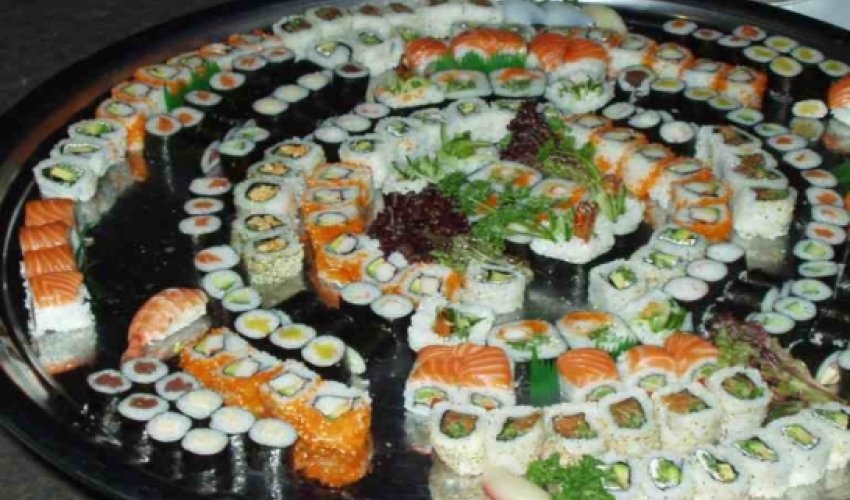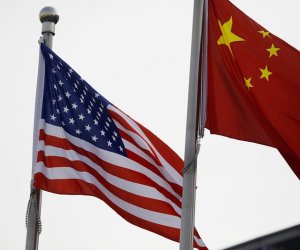How I became big in Japan writing about their food

But, the thing is, I am in Japan, being photographed by a Japanese photographer, with a Japanese art director who's not dissimilar to the one who bosses Murray about in the film, and the staff of a very high-brow Japanese cultural magazine watching. Plus, we are in one of Tokyo's oldest restaurants, Komagata Dozeu in Asakusa district, Tokyo, which specialises in serving pond loach (or "dojo" – small freshwater fish with a haunting aftertaste of soil), and the chef and several staff are all hovering by the paper doors of our private tatami room. Thinking about it, wasn't there some kind of racism scandal about Sofia Coppola's film in Japan?I decide to throw caution to the wind and say it anyway. I hold the sake cup up to the lens, and cock an eyebrow: "For relaxing times..." Luckily, not only do they get the reference to the film, they laugh. A little. Phew.This dojo-eating, sake-posing moment is just the most recent of a string of peculiar and unlikely events that have brought me an entirely unexpected but dangerously ego-burnishing level of recognition in probably my favourite country in the world.I hesitate to say that I am big in Japan, but since my book, Sushi and Beyond, was published in Japanese a year ago this month, I have been interviewed by the world's most-read newspaper (the Yomiuri Shimbun), and other Japanese publications; I am about to make the first of several planned Japanese TV appearances; and, most improbably of all, I am about to be turned into a manga character.The book was published in English in 2009 and weaves together a journey I took through Japan over several months with my wife and two young sons with about 40 different stories on the weird and fascinating world of Japanese cuisine. We dined with sumos, centenarians and the free-diving women who harvest abalone from the sea bed, the "Ama"; we climbed sacred peaks and massaged Japanese cows; we hunted wild wasabi and ate in the restaurant that made Ferran Adrià cry with joy. Snake soup, deadly fugu, cod sperm, still-twitching sea urchin and endless bowls of ramen and conveyor belts of sushi – we sampled it all. And I even met Japan's most popular boy band, SMAP. The book had some nice reviews when it came out in English, sold well enough for my publisher to pay me to write some more books, was translated into a couple of other languages and won a Guild of Food Writers award, but I never thought for a moment that the Japanese would be interested in it. Coals to Newcastle, and all that.But then, out of the blue, a couple of years later, a small Tokyo publisher called Akishobo made an offer to my agent for the foreign rights. They would only be able to publish around half of the book, but thought there might be a limited market for some of the stories. Freelance writers live for these kind of (very) minor, (very) rare windfalls, so I happily gave my consent and forgot all about it.In 2011, the Tohoku earthquake and tsunami struck, and I assumed the subsequent economic malaise would mean the end of the translation. As it turned out, it was delayed, but then early last year I was sent a pdf of the rather stunning cover, created by a well-known manga artist, and was told the book would be coming out in February 2013.A couple of weeks afterwards, I was idly checking the (usually pretty poor) sales ranking of some of my other books on Amazon.co.uk – I don't know any writer who doesn't do this regularly, and any who deny it are lying – when it dawned on me that there might also be such a thing as an amazon.co.jp. There was. And my book was in the top 10. I stood up from my desk, dumbfounded. I reloaded the page a couple of times, but it was still there, and it has been hanging around the higher echelons of the charts, both in translation, and even more weirdly, in the original English version, ever since.Sushi and Beyond – or "British Family Eats Japan", as it is known there – has since become Akishobo's bestseller of the year, reprinted 10 times and selling a total of almost 60,000 copies. Not JK Rowling figures, admittedly, but, to put it into perspective, that's one nought more than my last book sold in hardback in the UK. My earnings are hardly going to rival Wilbur Smith's – royalties on translations are from 6-8 per cent, then there's the Japanese agent's cut, and the UK agent's cut, plus I live in Denmark, so the tax man will take more than half of what's left – but I am simply overjoyed: the fact that a book I wrote, fuelled by passion for a country and its cuisine, which I adore and respect, has even just been accepted by the Japanese is a massive compliment.Fast forward to the loach restaurant, and, en route, lots of – from what I understand – complimentary reviews and coverage, and I am about to head to Japan for the third time in two years. This time, I am set to receive a writing prize, make appearances in book stores in Kyoto and Osaka, and talk to three Japanese TV companies – one about a two-hour special, another about a drama series based on my book (the mind truly boggles), and another about a series following me and my family through Japan again. I'll also be discussing the second instalment of Sushi and Beyond, this time featuring the chapters that weren't translated for the first edition, as well as not one but two manga versions of the book.I apologise if this sounds boastful: I don't mean it to. I am still shaking my head in bewilderment at the sheer improbability of it all. Why have the Japanese taken my little book to their hearts? The feedback I've had suggests, surprisingly, that there is material in there that Japanese people didn't know, which is a tribute, as much as anything, to my researcher and fixer, Emiko Doi, and the Japanese apparently seem to like my humour. The gorgeous cover helped, I'm sure, plus I was lucky that the manuscript was picked up by a publisher that values grassroots book fans, works enthusiastically with independent book stores and has a creative marketing team.The timing of my trip to Japan is not ideal, at least not for my state of mind. My new book, The Almost Nearly Perfect People: The Truth About the Nordic Miracle, came out last week and is BBC Radio 4's Book of the Week this week. The book industry being the way it is, I have been busy drumming up interest in it. I have spent the past two weeks talking to media from Chile to Greece, as well as in the UK, and all of the Nordic countries about my critical take on the supposedly utopian societies of the North – Norway, Sweden, Denmark, Iceland and Finland.I've written a couple of quite provocative newspaper pieces prompting threats from angry Norwegians, withering put-downs from disgruntled Finnish diplomats and well-argued rejoinders from Swedish academics. I am off to central Copenhagen tomorrow to defend myself to a national newspaper and hook up with German radio. But in a couple of days, I have to switch topic, and try to dredge up everything I know about Japanese food from the depths of my memory once again. It's turning out to be a schizophrenic month, but I am hugely grateful for the attention. My books take years to plan, research, write and edit, so it is always nice if anyone shows the slightest interest in them once they leave the nest.Writing this, I realise that these two apparently very different books – one a food journey the length of Japan, the other, for want of a better description, a kind of "popular anthropological travelogue exposé" of the Nordic countries – have one thing in common. Both seem to have touched a nerve with their subjects as well as with the originally intended readers. The Japanese, isolated for many centuries and still somewhat separate from the world, have been intrigued by a take on them offered by an English journalist. Similarly, the Scandinavians, who have also been rather isolated in their own way, seem curious to hear what outsiders think of them.It reminds me of a joke told to me by the German actor, Roman Schatz, who has lived in Finland for decades: a Finn, a Frenchman and a German spot an elephant on safari. "I shall compose a poem about its beauty," thinks the Frenchman. "How much could I sell those tusks for?" ponders the German. "I wonder what the elephant is thinking about me?" says the Finn.(independent.co.uk)ANN.Az




































 Photo
Photo 



 Video
Video 

